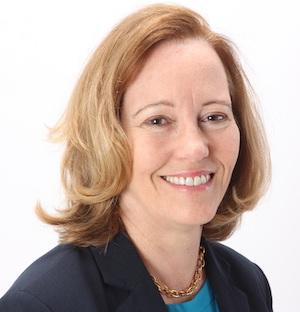National Academy of Medicine
See the following -
Creating a Knowledge Infrastructure for the ‘Learning Health System’
 The idea that the healthcare industry can study the data being created in electronic health records (EHR) to foster ongoing improvement is not a new one, but it is gaining momentum. A “learning health system” is one that commits to the use of data as a byproduct of care for continuous learning. Clinicians and health system researchers want to tackle perhaps their industry’s most significant knowledge management challenge: how to capture the results of research into clinical best practices and more quickly feed it back to doctors and nurses at the point of care...
The idea that the healthcare industry can study the data being created in electronic health records (EHR) to foster ongoing improvement is not a new one, but it is gaining momentum. A “learning health system” is one that commits to the use of data as a byproduct of care for continuous learning. Clinicians and health system researchers want to tackle perhaps their industry’s most significant knowledge management challenge: how to capture the results of research into clinical best practices and more quickly feed it back to doctors and nurses at the point of care...
- Login to post comments
OpenNotes Introduces Advisory Board
 OpenNotes is pleased to announce that ten extraordinary advocates for health care quality and improvement are the founding members of the OpenNotes Advisory Board. OpenNotes is a national movement that urges doctors, nurses and other health care providers to share the notes they write with the patients they care for...
OpenNotes is pleased to announce that ten extraordinary advocates for health care quality and improvement are the founding members of the OpenNotes Advisory Board. OpenNotes is a national movement that urges doctors, nurses and other health care providers to share the notes they write with the patients they care for...
- Login to post comments
The Case Against Sugar
‘Virtually zero.’ That’s a reasonable estimate of the probability that public health authorities in the foreseeable future will successfully curb the worldwide epidemics of obesity and diabetes, at least according to Margaret Chan, the director general of the World Health Organization (WHO) – a person who should know. Virtually zero is the likelihood, Chan said at the National Academy of Medicine’s annual meeting in October, that she and her many colleagues worldwide will successfully prevent ‘a bad situation’ from ‘getting much worse’...
- Login to post comments
The Importance of a Nursing Data Framework for Clinical Data Exchange
 With more than 4 million nurses in the U.S., nurses are the largest clinical segment of the U.S. healthcare sector. Nurses have indisputably demonstrated an ability to improve healthcare outcomes. We are just beginning to utilize data from healthcare information technologies and to leverage Artificial Intelligence (AI) to improve patient outcomes. One of the key benefits of AI will be the ability to leverage the data from nursing care plans and nursing diagnoses to perform work load balancing for nursing staff. This is a key solution to future management of the problem of the shortage of nurses.
With more than 4 million nurses in the U.S., nurses are the largest clinical segment of the U.S. healthcare sector. Nurses have indisputably demonstrated an ability to improve healthcare outcomes. We are just beginning to utilize data from healthcare information technologies and to leverage Artificial Intelligence (AI) to improve patient outcomes. One of the key benefits of AI will be the ability to leverage the data from nursing care plans and nursing diagnoses to perform work load balancing for nursing staff. This is a key solution to future management of the problem of the shortage of nurses.
- Login to post comments
What Hospitals Can Learn from Airlines About Buying Equipment
For critically ill patients on breathing machines, a simple step drastically improves their survival chances by almost 10% — from 60% to 70%. It involves programming the machine to deliver enough life-sustaining breaths, but not so much that it damages their lungs by overinflating them. Given that this intervention could prevent more suffering than many wonder drugs, one would expect that there would be zero market for a breathing machine that didn’t make lung-preventive ventilation as easy as possible. But in health care, few things work as expected. Fewer than half of patients, and in some hospitals fewer than 20%, receive this life-saving intervention...
- Login to post comments
What Hospitals Waste
 Just outside Portland, Maine, there’s a 15,000-square-foot warehouse that’s packed with reasons the U.S. health care system costs so much: Shelves climb floor to ceiling, stacked with tubs overflowing with unopened packages of syringes, diabetes supplies and shiny surgical instruments that run hundreds of dollars apiece. There are boxes of IV fluids and bags of ostomy supplies and kits with everything you’d need to perform an obstetrics surgery...
Just outside Portland, Maine, there’s a 15,000-square-foot warehouse that’s packed with reasons the U.S. health care system costs so much: Shelves climb floor to ceiling, stacked with tubs overflowing with unopened packages of syringes, diabetes supplies and shiny surgical instruments that run hundreds of dollars apiece. There are boxes of IV fluids and bags of ostomy supplies and kits with everything you’d need to perform an obstetrics surgery...
- Login to post comments